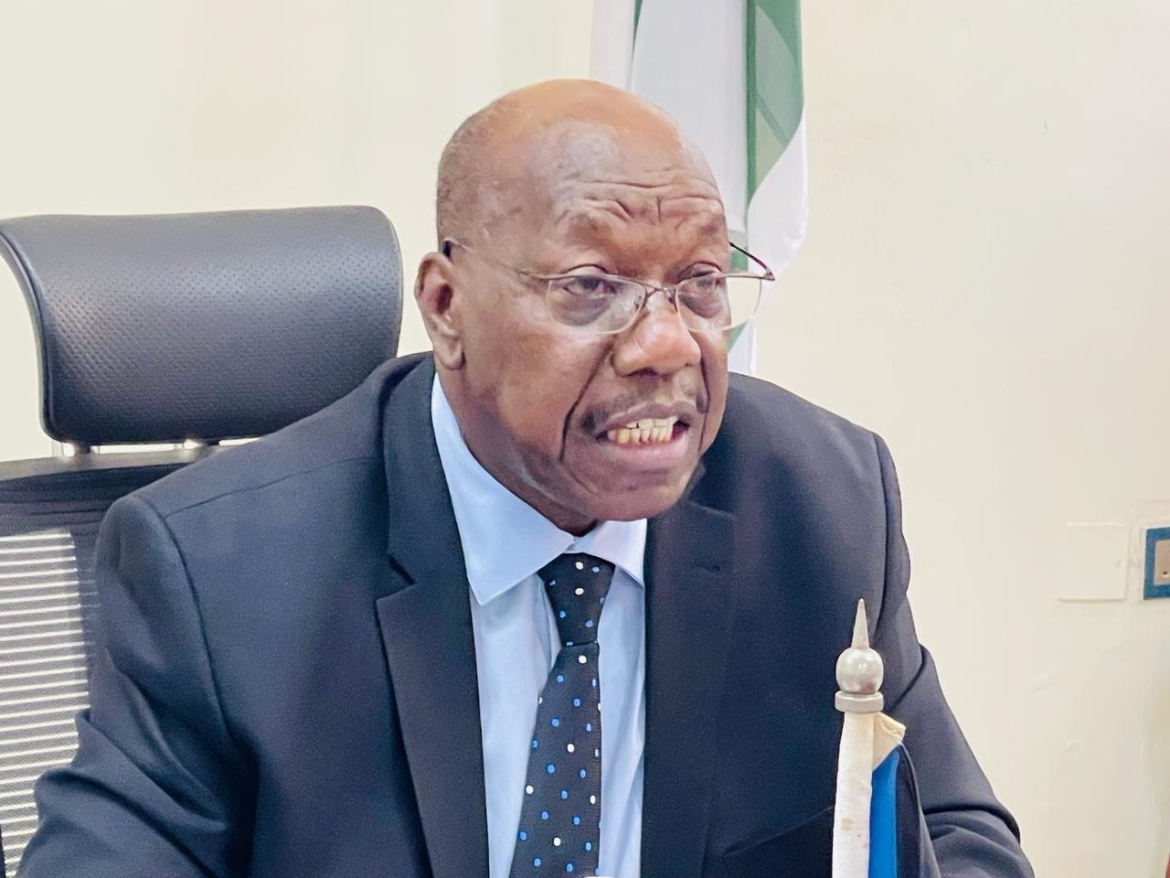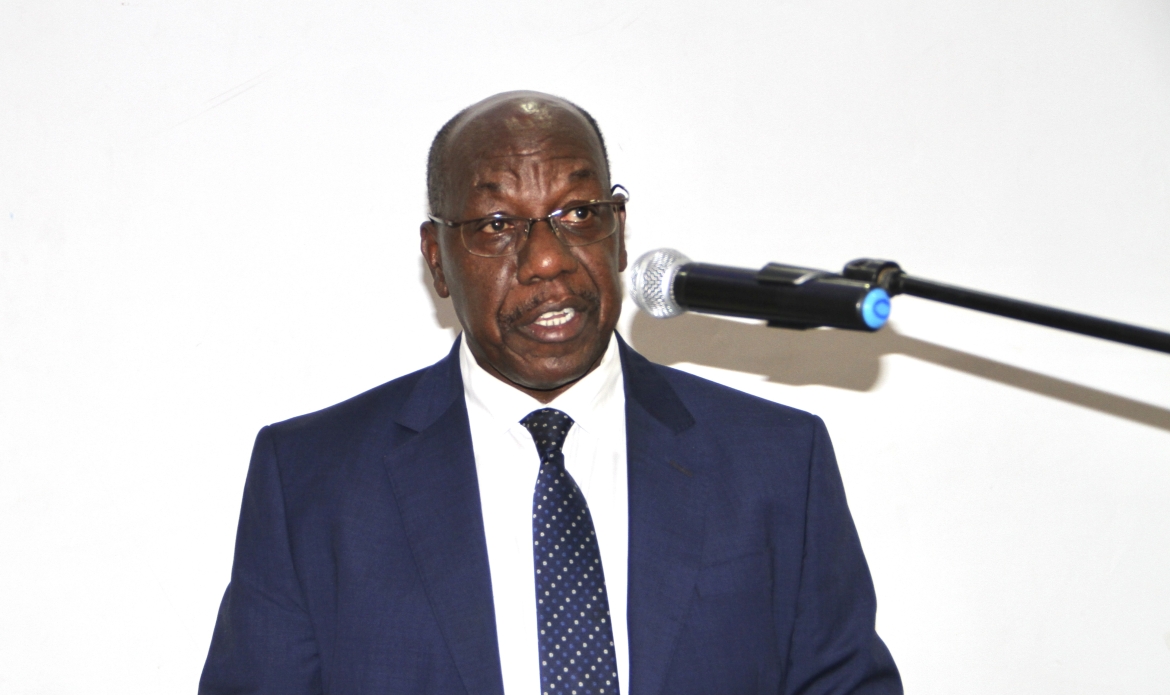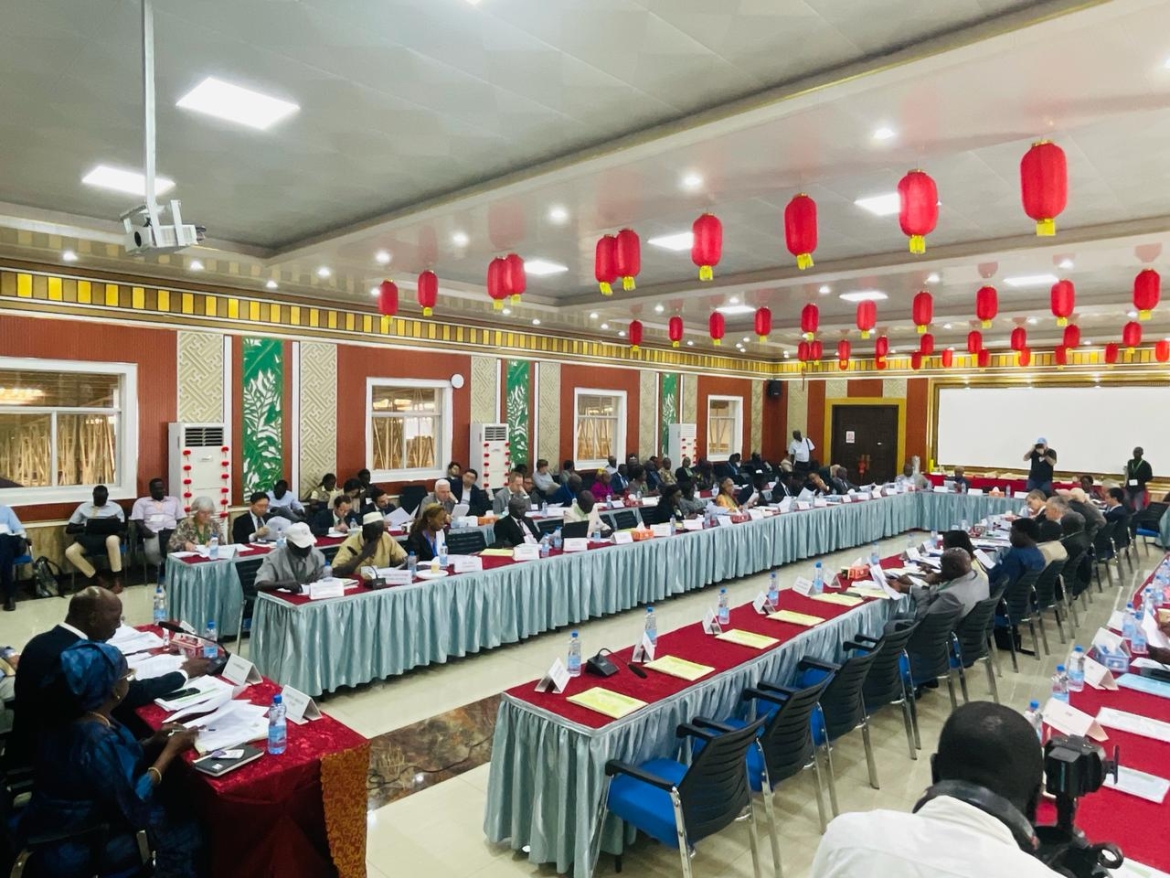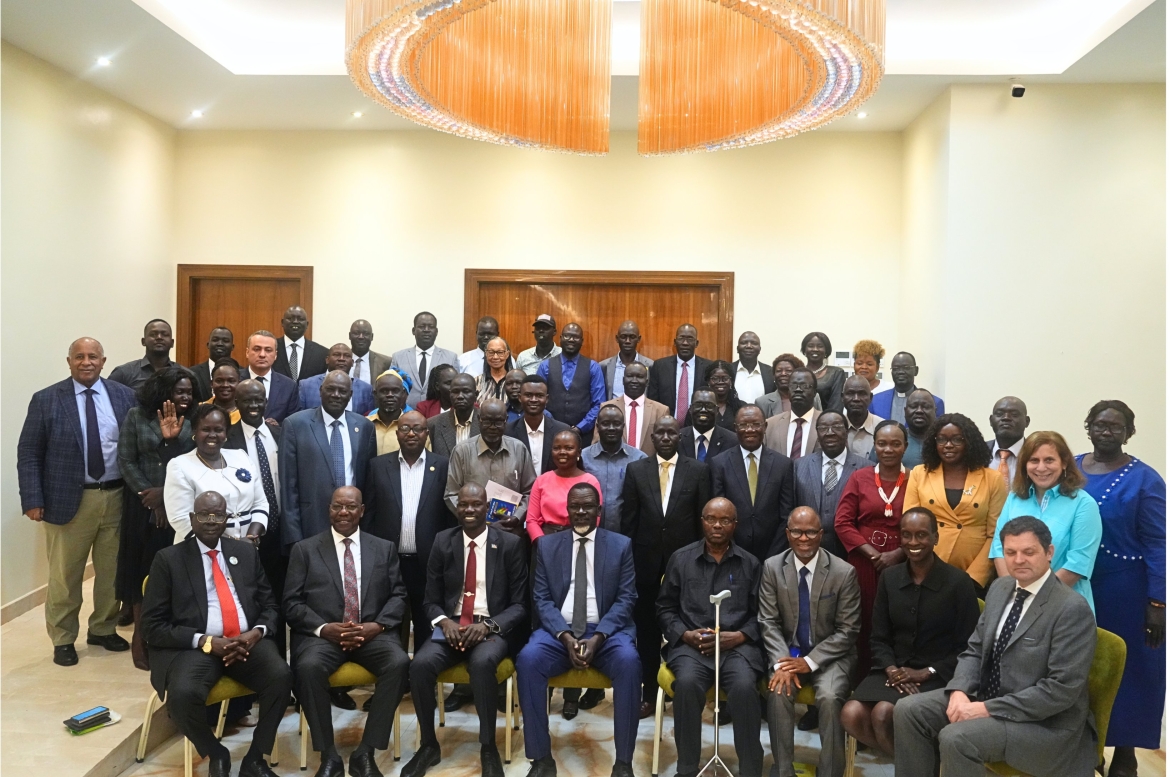Op-Ed by Major General Charles Tai Gituai, Interim Chairperson of RJMEC
This article by Major General Charles Tai Gituai, Interim Chairperson of the Reconstituted Joint Monitoring and Evaluation Commission (RJMEC), appeared in the local press.
2020 has been a momentous year for the country of South Sudan and the Revitalised Agreement on the Resolution of the Conflict in South Sudan (R-ARCSS). In February this year, the decision on the part of H.E. Salva Kiir Mayardit, the President of the Republic of South Sudan, to revert the country to ten states was a historic moment which allowed the formation of Revitalised Transitional Government of National Unity (RTGoNU) on a solid foundation.
Given the difficult recent history of conflict in the country, this is welcome indeed. From the time of the High-Level Revitalisation Forum beginning in 2017 to the signing of the R-ARCSS in September 2018, all the Parties to the R-ARCSS have played their part in this success. Just as importantly, so have the diverse people of South Sudan who have stood alongside their leaders in the demand for sustainable peace and the full implementation of the Agreement, which is a document guaranteed by the region and supported by the wider international community.
In particular, the people of South Sudan figure centrally in this Agreement and benefit from its inclusivity – after all, it was for all citizens, regardless of their backgrounds or political beliefs and affiliations, that the Peace Agreement was negotiated to reconcile, bring justice to and pave the way for peace and prosperity.
With this in mind, the ongoing National Dialogue conference which has been taking place in Juba presents an opportunity to reflect on the achievements of the peace process and the Revitalised Peace Agreement. It is also an opportunity to focus attention on where greater support is needed. I will be interested to hear the outcomes of the conference, because of the potential lessons and value added that could apply to the continuing implementation of the Agreement.
The implementation of Chapter 1 of the Revitalised Peace Agreement, on governance, has been challenging, but it has been progressing. The reversion to ten states was a momentous act of leadership and compromise, and a clear signal of intent from the President. The RTGoNU that formed following this decision is comprised of all Parties to the Agreement, as per Article 1.3.1. In February and March this year, the Presidency (composed of the Parties to the Agreement as per Article 1.5.2) and the Council of Ministers (composed of the Parties to the Agreement as per Article 1.12) was sworn in respectively. Nine of ten State governors have been appointed, and the issue of responsibility sharing at the state and local government level is proceeding, following the responsibility sharing formula in Article 1.16.1.
Though implementation thus far has been slowed by recurring questions of inadequate funding, political will and trust deficit, it is nonetheless encouraging to see this degree of cross-Party cooperation, and it bodes well for the future. These achievements can be built upon – there is greater need to finalise the structures of government without further delay, and to complete nominations from all the Parties to the positions of governance, and reconstitute the Transitional National Legislative Assembly. As this process proceeds, I urge the Parties to observe the 35% level for women’s representation.
Chapter 2, on the Permanent Ceasefire and the Transitional Security Arrangements, has made slow progress. That said, some key building blocks are in place. Tens of thousands of troops from all three groups who were engaged in the armed struggle reported to cantonment sites and training centres across the country. Though conditions in these sites and centres have been austere, the morale and discipline among the troops who reported there has remained commendable. It is expected that troops of the Unified Forces will soon begin to be graduated, as this is a critical undertaking that will guarantee enduring peace and stability, and South Sudan will have the makings of a professional military like any other in the region.
Now we are in the Transitional period, the work of Chapters 5 and 6, Transitional Justice, Accountability, Reconciliation and Healing, and Parameters of Permanent Constitution respectively, can begin in earnest. In this area in particular the National Dialogue could provide substantive transferable knowledge. Its recent experience of reaching and listening to the grassroots can prove invaluable, because both these chapters are truly aimed at understanding the experiences and needs of the people, and putting in place the building blocks which atone for the past and prevent a return to the conflict which wreaked such destruction in the country. The three transitional justice mechanisms described in Chapter 5 are essential to atone for crimes committed during the dark days of conflict, which is the “untold human suffering” that the Agreement acknowledges. In this regard, their expeditious establishment will be a great leap forward and RTGoNU support on this matter is critical. Already the African Union has commenced towards the establishment of the Hybrid Court of South Sudan.
Furthermore, Chapter 6 of the Agreement on establishing the Permanent Constitution is vital, as it will lay a critical fundamental foundation for enduring peace in South Sudan. The Preamble of the Revitalised Peace Agreement duly recognises that the Parties to the Agreement are “determined to compensate our people by recommitting ourselves to peace and constitutionalism and not to repeat mistakes of the past.” Therefore, ensuring that the Permanent Constitution is a true reflection of all South Sudan’s peoples’ views is of paramount importance. In this regard, supporting a free media which can act as a platform for peaceful and respectful exchange of views is important.
When the Constitution-making process is fully underway, at the appropriate time reaching communities at the grassroot level and understanding the perspectives of all peoples of South Sudan, irrespective of their backgrounds or political beliefs and affiliations, will be a critical ingredient in establishing the solid foundation that Chapter 6 intends to lay. The RJMEC Secretariat will be convening a workshop to push this process along in January 2020, as per Article 6.7 of the R-ARCSS. In addition, a comparative study on post-conflict constitution-making processes has been conducted to inform this process, and copies are available on the RJMEC website (https://jmecsouthsudan.org/index.php/media-center/news/item/524-post-conflict-constitution-making-processes-lessons-and-best-practices-for-south-sudan).
Given the importance of those tasks in the Agreement which are to be implemented, the recommendations which the National Dialogue delivers will be of interest to many in South Sudan, myself included. I hope they bond well with the contents and mechanisms of the Revitalised Peace Agreement, which is the appropriate framework for implementation. There can be no greater goal than laying the foundations for sustainable peace in South Sudan, where every single South Sudanese citizen plays a role, something all of us are trying to achieve.





